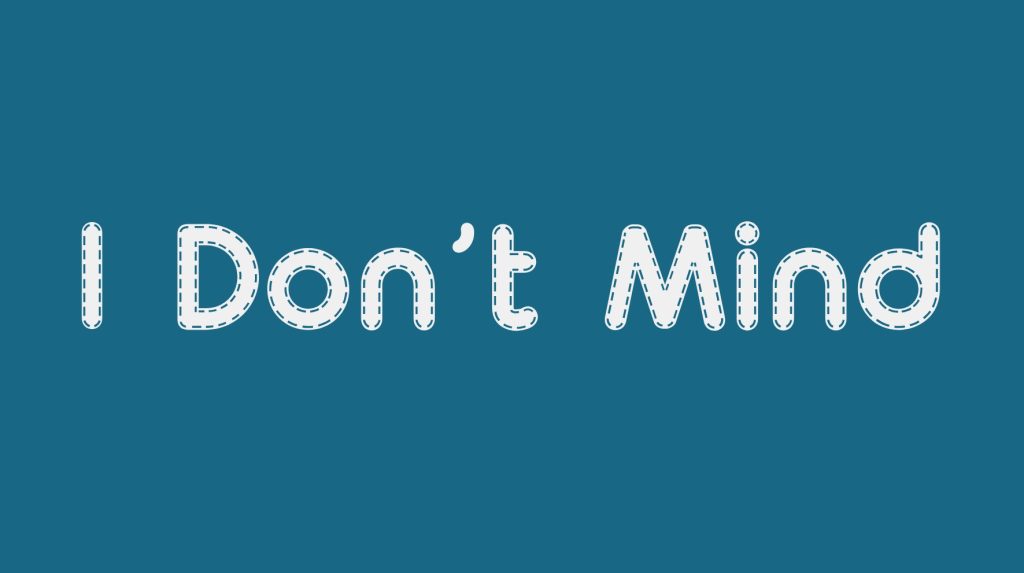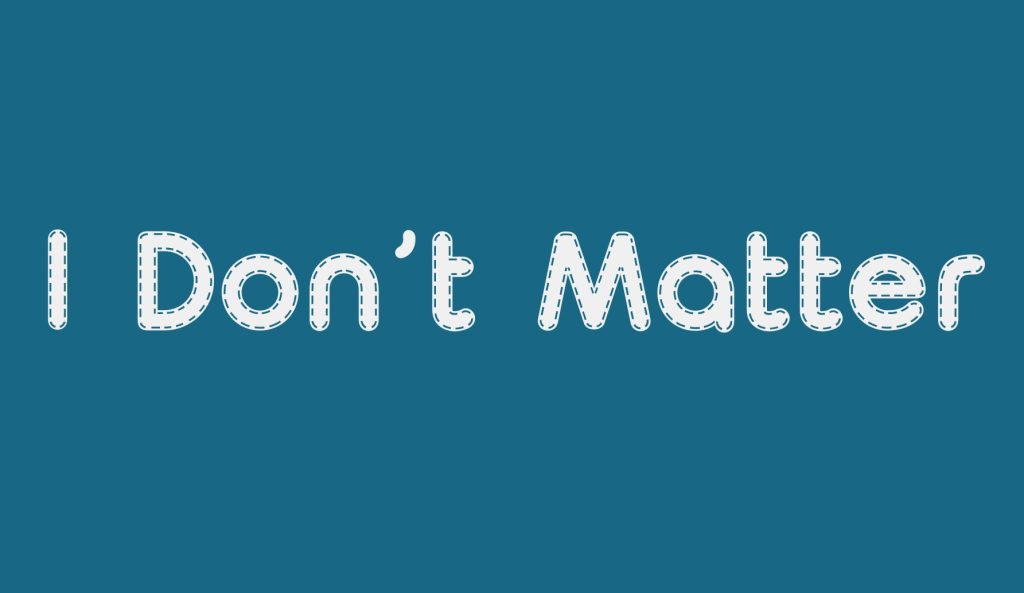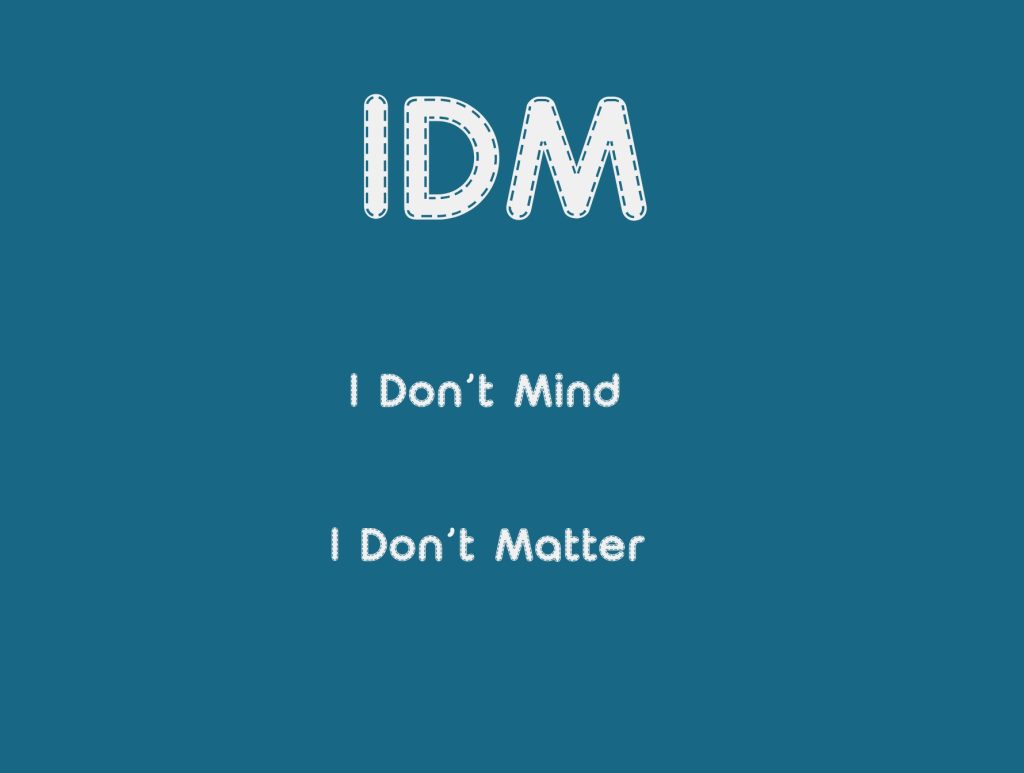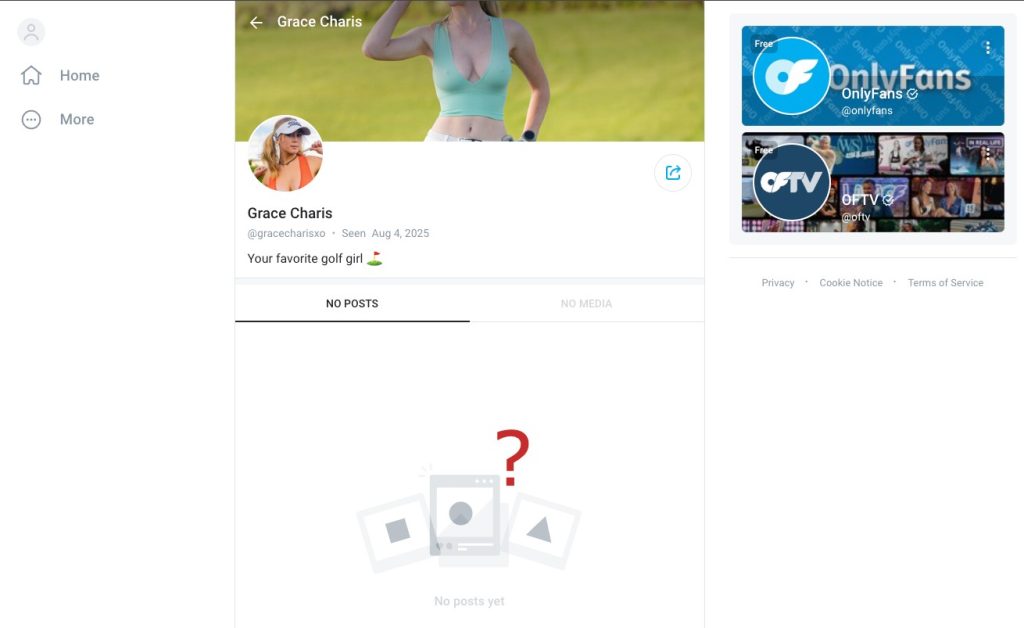IDM often indicates “I Don’t Mind”, it can also mean “I Don’t Matter” in certain contexts. Additionally, IDM has other meanings, such as referring to a genre of music or technical terms in specific industries.
In this article, I’ll talk about the various meanings of IDM, how it’s used in texting and social media, and when it’s appropriate to use.
I Don’t Mind

The phrase “I Don’t Mind” is often used to show that someone is open to different options or doesn’t have a strong preference. It’s a polite way of saying, “I’m okay with whatever you decide.” When people use IDM in texting or on social media, they are expressing flexibility or indifference toward a choice.
For example:
- If someone asks, “Do you want to watch a movie or go for a walk?” and you reply “IDM,” it means you’re fine with either option.
- Similarly, if someone says, “Should we meet at 2 PM or 3 PM?” and you respond with “IDM,” you’re indicating that either time works for you.
The abbreviation simplifies communication by letting others know that you’re easygoing about the decision being made.
People use IDM because it’s short, convenient, and easy to type. In today’s fast-paced world, where many conversations happen through text messages or social media platforms, abbreviations like IDM save time. Instead of typing out “I don’t mind,” which takes longer, using IDM gets the point across quickly.
Another reason people use IDM is that it conveys a relaxed attitude. It indicates that you’re not overly concerned about the outcome and are willing to go along with what others prefer. Therefore, it can help make group decisions smoother and reduce unnecessary back-and-forth in conversations.
Use Examples
Here are some examples of how IDM is used in everyday texting:
Make Plans
- Friend 1: “Do you want to eat at the new Italian place or stick with our usual spot?”
- Friend 2: “IDM! Both sound good.”
Decide on Activities
- Friend 1: “Should we play video games or watch Netflix?”
- Friend 2: “IDM! You pick.”
In these examples, IDM helps keep the conversation light and easy while indicating that the person is open to suggestions.
How to Reply to IDM
When someone says IDM means “I Don’t Mind” in a conversation, the person is leaving the decision up to you or the group. Here are some ways you can reply:
1. Make the Decision Yourself
As they’re giving you the freedom to choose. You can take charge by making the decision for them:
- Example:
- Person 1: “Should we go for burgers or tacos?”
- Person 2: “IDM.”
- Person 1: “Okay, let’s do tacos!”
By deciding yourself, you save time and keep the conversation moving.
2. Ask for Clarification
Sometimes, even if someone says IDM, they might have a slight preference but don’t want to impose it. You can ask for clarification to make sure:
- Example:
- Person 1: “Do you prefer coffee or tea?”
- Person 2: “IDM.”
- Person 1: “Are you sure? If you had to pick one, what would it be?”
As you can see, in this way, you value their input while still respecting their flexibility.
3. Offer Suggestions
If you’re unsure how to proceed after someone says IDM, you can offer a suggestion and see if they agree:
- Example:
- Person 1: “Should we meet at your place or mine?”
- Person 2: “IDM.”
- Person 1: “How about my place? It’s closer.”
4. Use Humor or Lightheartedness
To keep things fun and casual, you can respond playfully:
- Example:
- Person 1: “Do you want pizza or sushi?”
- Person 2: “IDM.”
- Person 1: “Great! Pizza it is—unless you secretly hate pizza.”
I Don’t Matter

While IDM is often used to mean “I Don’t Mind,” it can also take on a more emotional meaning: “I Don’t Matter.” It often reflects feelings of self-doubt, insignificance, or a desire to minimize one’s role in a situation.
So when someone uses IDM as “I Don’t Mind”, they may be expressing that they feel overlooked or undervalued, even if they don’t say it outright.
For example:
- If someone says, “IDM” after being asked for their opinion on something important, they might mean “I don’t matter” rather than “I don’t mind.”
- In another scenario, if someone feels left out in a group discussion and says “IDM,” they could be expressing feelings of being overlooked.
This usage of IDM can sometimes indicate sadness or low self-esteem. So it’s important to pay attention to the context and tone of the conversation to understand whether someone is using IDM in this way.
When Is “I Don’t Matter” Used?
People might use “I Don’t Matter” (IDM) when they feel like their opinions or presence aren’t valued. For example:
- In group settings where decisions are being made without their input.
- During emotional discussions where someone feels unimportant or ignored.
If you notice someone using IDM in this context, it might be worth checking in with them to see how they’re feeling. A kind word or reassurance can go a long way in helping them feel valued.
For example:
- Person 1: “Do you want to come with us to the park?”
- Person 2: “IDM.”
Here, if the tone of the conversation suggests sadness or detachment, IDM could mean “I Don’t Matter” rather than “I Don’t Mind.” Understanding the subtle difference is key to responding in a way that supports and uplifts the other person.
How to Reply to IDM When It Means “I Don’t Matter”
If someone uses IDM to mean “I Don’t Matter,” your response can make a big difference in how they feel. Here are some thoughtful ways to reply:
1. Reassure Them That They Matter
When someone implies that they feel unimportant, it’s important to let them know they are valued. A reassuring response can help them feel seen and appreciated:
- Example:
- Person 1: “What do you think we should do?”
- Person 2: “IDM.”
- Person 1: “Your opinion really matters to me. I’d love to hear what you think.”
2. Encourage Them to Share Their Thoughts
Sometimes people use IDM as a way of avoiding conflict or decision-making because they feel their input won’t be valued. Gently encouraging them to share their preferences can help them feel more confident:
- Example:
- Person 1: “Do you want pizza or sushi for dinner?”
- Person 2: “IDM.”
- Person 1: “I’d really like to know what you’re in the mood for—it’s important to me.”
3. Show Empathy
If someone seems upset and uses IDM, you can demonstrate empathy to open the door for deeper communication:
- Example:
- Person 1: “Do you feel like joining us for dinner?”
- Person 2: “IDM.”
- Person 1: “Hey, are you okay? You seem a little quiet—do you want to talk about anything?”
4. Offer Positive Affirmation
Sometimes people need a reminder of their worth when they’re feeling down. If you can offer positive affirmation, then you can help lift their spirits:
- Example:
- Person 1: “Should we go hiking or stay home?”
- Person 2: “IDM.”
- Person 1: “You always have great ideas—what’s your take? I really value your input.”
5. Avoid Dismissing Their Feelings
If someone uses IDM emotionally, avoid brushing it off or ignoring it. Responding with something like “Okay, whatever” could make them feel worse. Instead, take the time to acknowledge their feelings and respond with kindness.
Why Your Reply Matters
As you can imagine, when someone uses IDM in an emotional context, your response can have a meaningful impact on their mood and confidence. A thoughtful reply shows that you value their presence and opinions, even if they’re hesitant to share them.
You can make a big difference in their day, and in your relationship with them.
Other Meanings of IDM
Abbreviations often have multiple meanings depending on the context in which they’re used. While “I Don’t Mind” and “I Don’t Matter” are the most common interpretations of IDM in casual conversations, there are other meanings worth exploring.
Intelligent Dance Music
One popular alternative meaning for IDM is Intelligent Dance Music, which refers to a subgenre of electronic music. Such genre is known for its experimental sounds and complex rhythms. Fans of electronic music often use IDM when discussing artists, tracks, or playlists related to this style.
For example:
- Someone might post on social media: “Just discovered an amazing new IDM artist! Their beats are incredible.”
Intelligent Dance Music appeals to listeners who enjoy intricate compositions and unique soundscapes.
Industry-Specific Meanings
In professional settings, IDM can stand for various technical terms depending on the industry:
- Integrated Document Management: Refers to systems used for organizing and managing digital documents.
- Identity Management: In IT and cybersecurity fields, it refers to systems that handle user identities and access permissions.
- Interactive Digital Media: Used in creative industries like advertising or game design.
These meanings are less relevant in casual texting but highlight how acronyms like IDM can have diverse interpretations across different fields.
Use IDM On Social Media
On platforms like Instagram, Snapchat, or TikTok, people often use abbreviations like IDM to keep their posts short and engaging:
- Instagram caption: “Beach day tomorrow? Pizza after? IDM!”
- TikTok comment: “Should I post my workout routine or my recipe video? IDC/IDM—let me know!”
Using abbreviations like IDM on social media makes interactions feel more relaxed and approachable while encouraging engagement from others.





